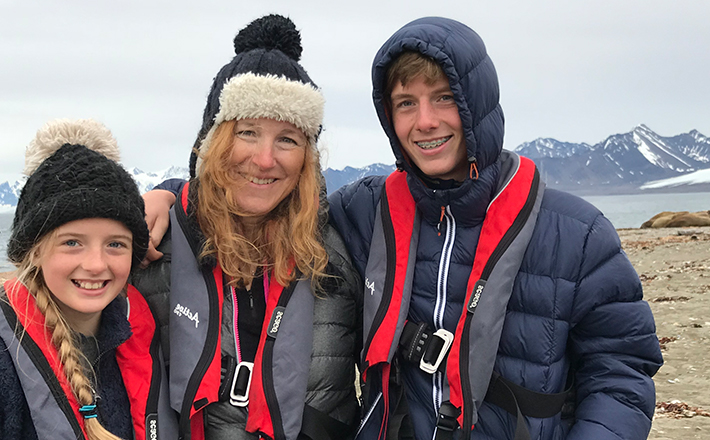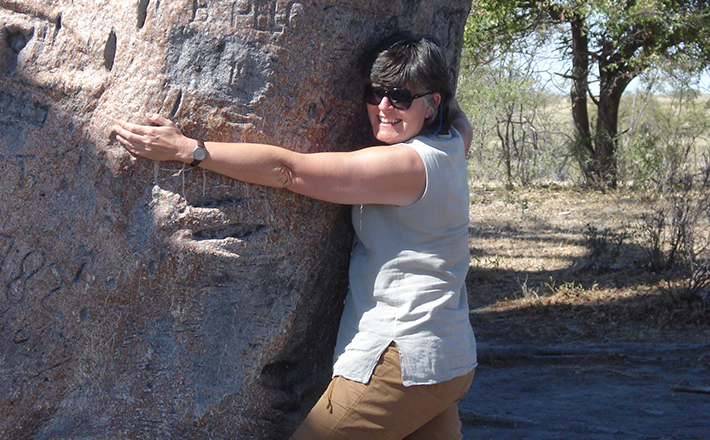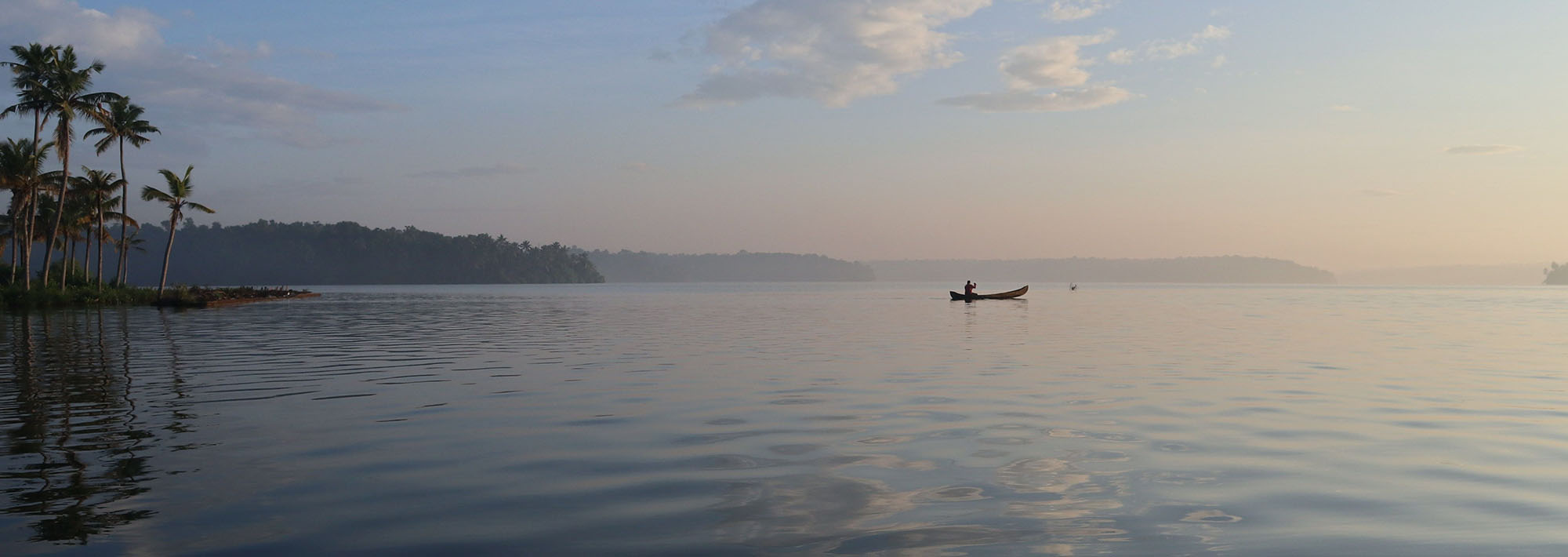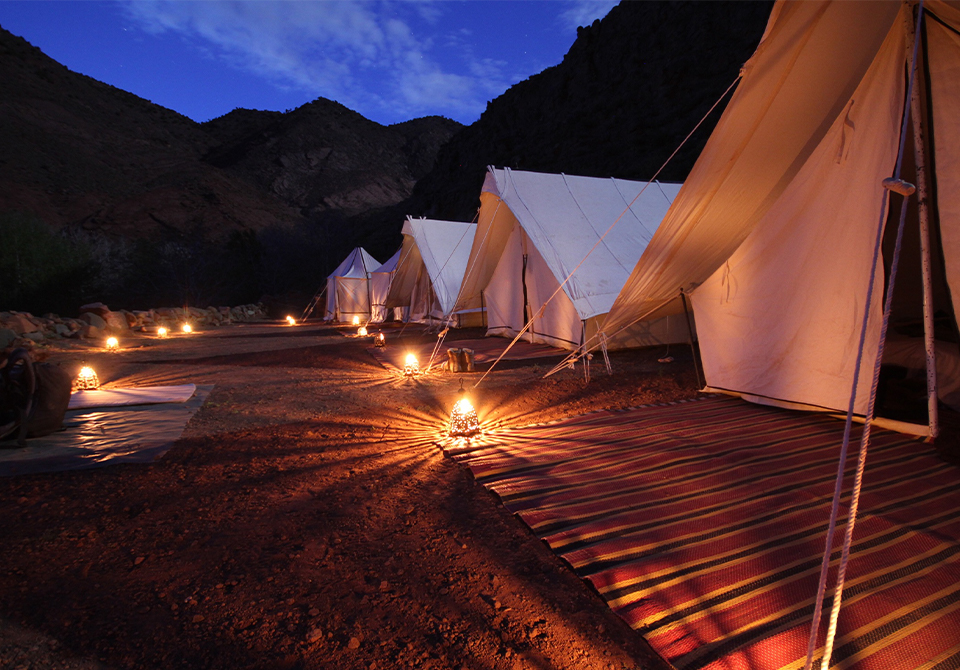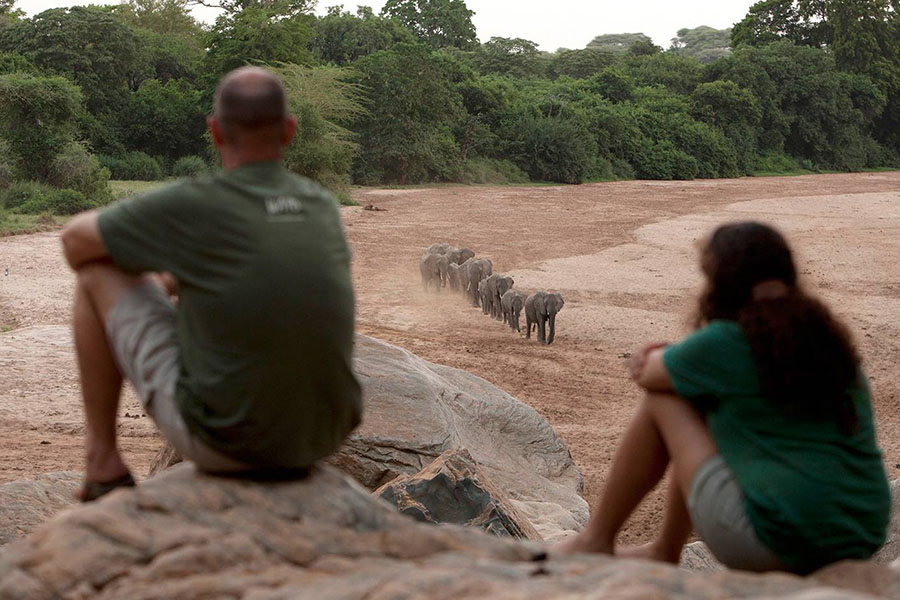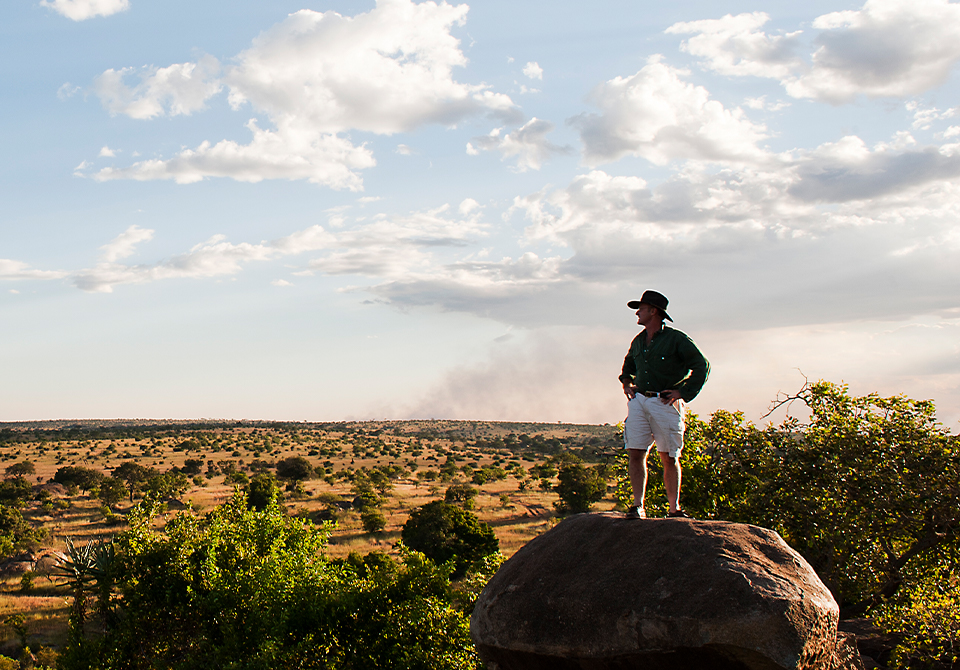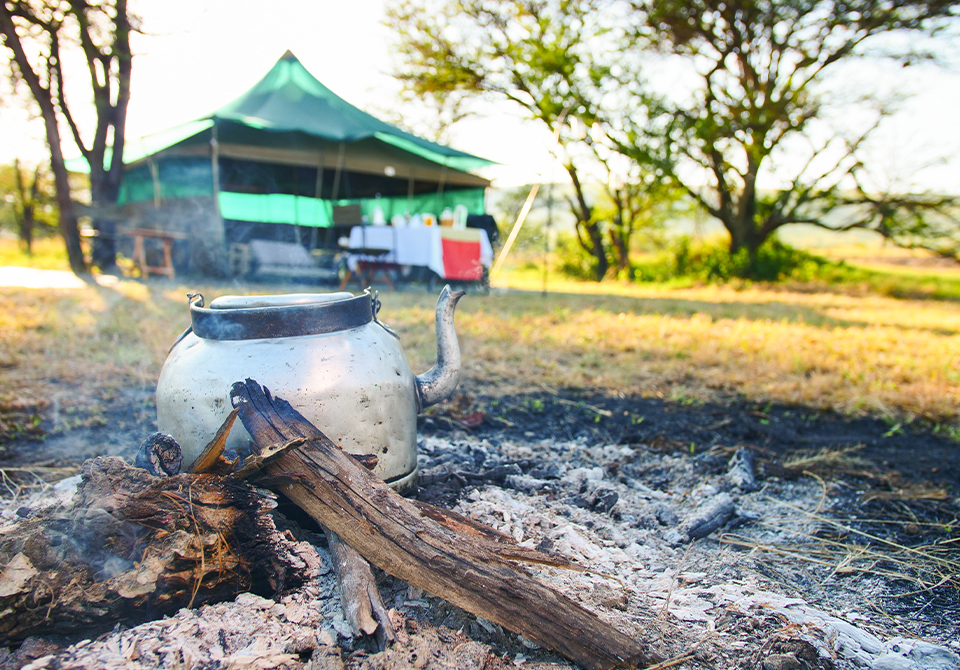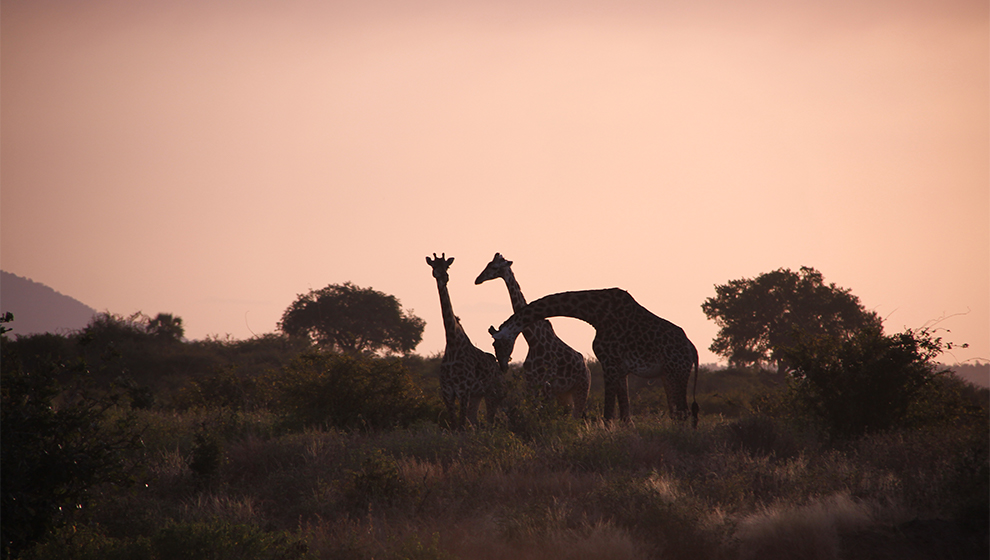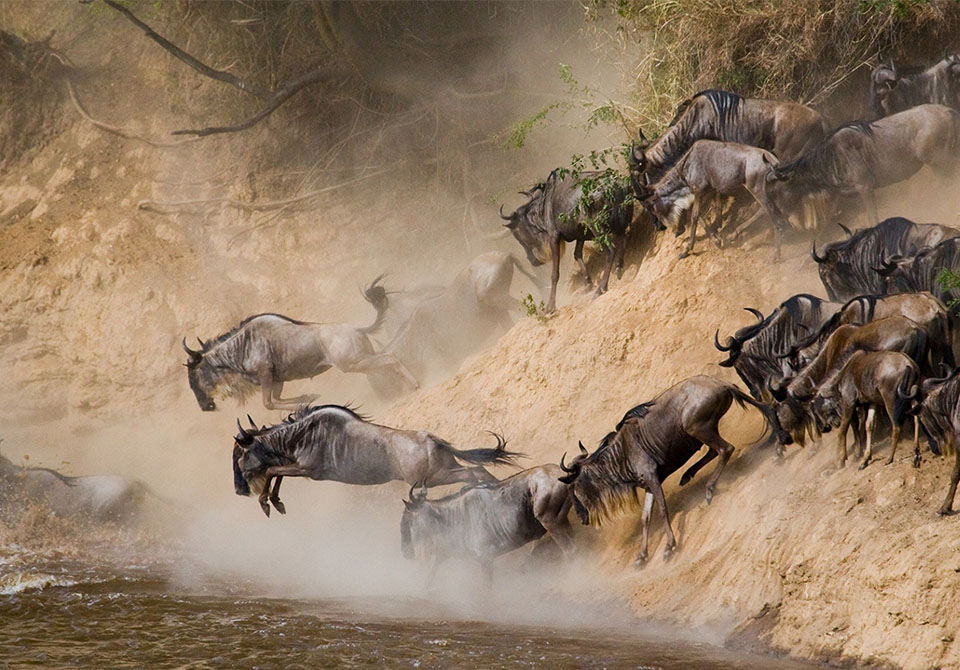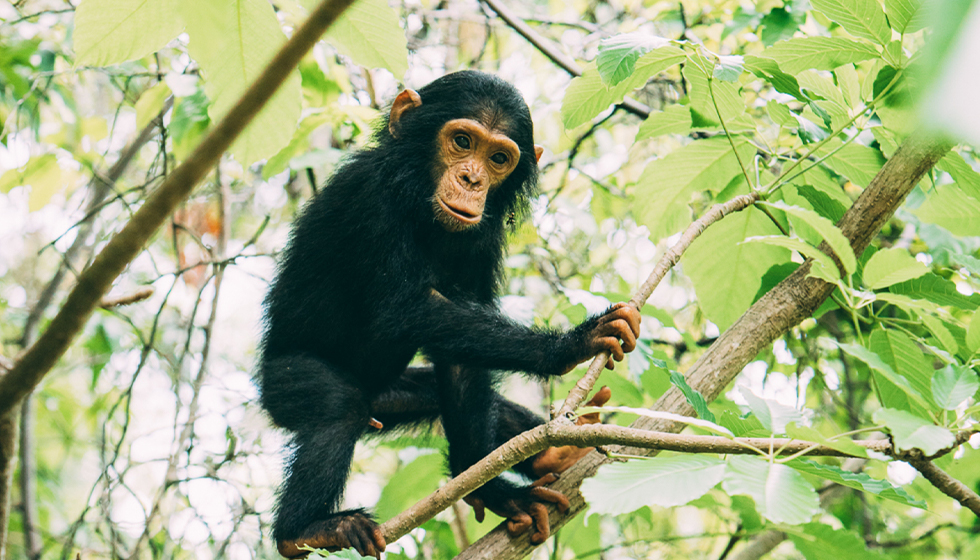From authentic safari experiences to luxury escapes, we create entirely unique itineraries that are bespoke to each client’s desires. Take a look at some of the tailor-made trips we’ve created previously.
Kerala Itinerary
This itinerary takes you through Kerala’s diverse landscapes, from the misty tea plantations of Munnar and spice gardens of Periyar to the serene backwaters and relaxed beaches of the Arabian Sea
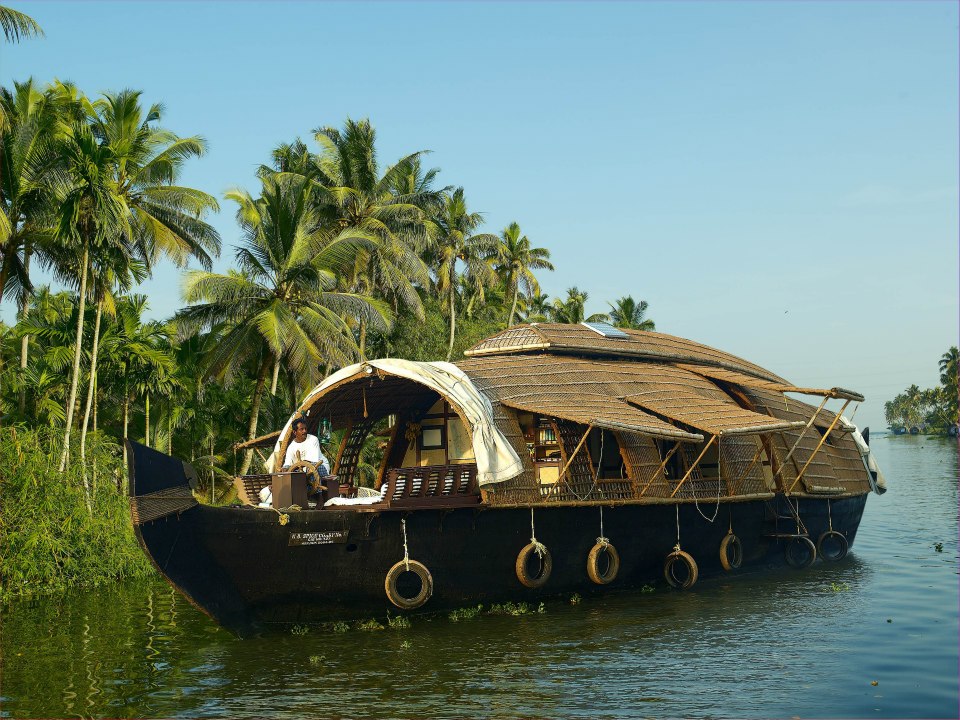
- 14 Nights
- October – March
- India
- Authentic
Trip Overview
This journey through Kerala combines lush hill country, spice plantations, and the tranquil backwaters with time to unwind on the coast. From exploring Munnar’s tea estates and Periyar’s spice gardens to drifting along quiet waterways on a houseboat, each stop offers a different side of southern India. The trip ends in historic Cochin, where colonial influences and vibrant local culture come together on the shores of the Arabian Sea.
- Houseboat on the backwaters
- Visiting Tea and Spice Plantations
- The Beach
Windermere River House
The most well-known of India’s southern states, Kerala is the country’s most verdant and relaxed. It is undoubtedly one of India’s most beautiful and the slow pace of life in ‘god’s own country’ is ideal for unwinding and getting back to nature. Sandwiched between the Arabian Sea and Western Ghats that form the border with Tamil Nadu to the east, Kerala is fertile paradise of palm lined beaches, rice paddies, steamy jungles and plantations in every shade of green imaginable. The hills are lovely country for treks and walks with fabulous views, or you can hike into the jungle with a reformed poached in search of wildlife. Between the coast and hills is an enchanting watery network of lakes, rivers and canals. The best way to get around is by boat, sipping fresh coconut water while drifting along on a converted rice barge, or paddling your own canoe observing Backwaters life along the way. With its long coastline Kerala cuisine contains many mouth-watering seafood dishes. Delicately flavoured with local spices and enriched with coconut milk, meals are a foodie’s delight. We recommend joining a cookery demonstration or course to discover what is in the kitchen and the secrets old family recipes. Kerala is also the home of ayurveda, a 2000 year old healing tradition based on the science of complete well-being. An ayurvedic doctor will prescribe a special diet, herbal remedies and therapies, but if you don’t have the time or inclination for such a course, a massage in which your body is treated like a temple should leave you completely relaxed and rejuvenated.
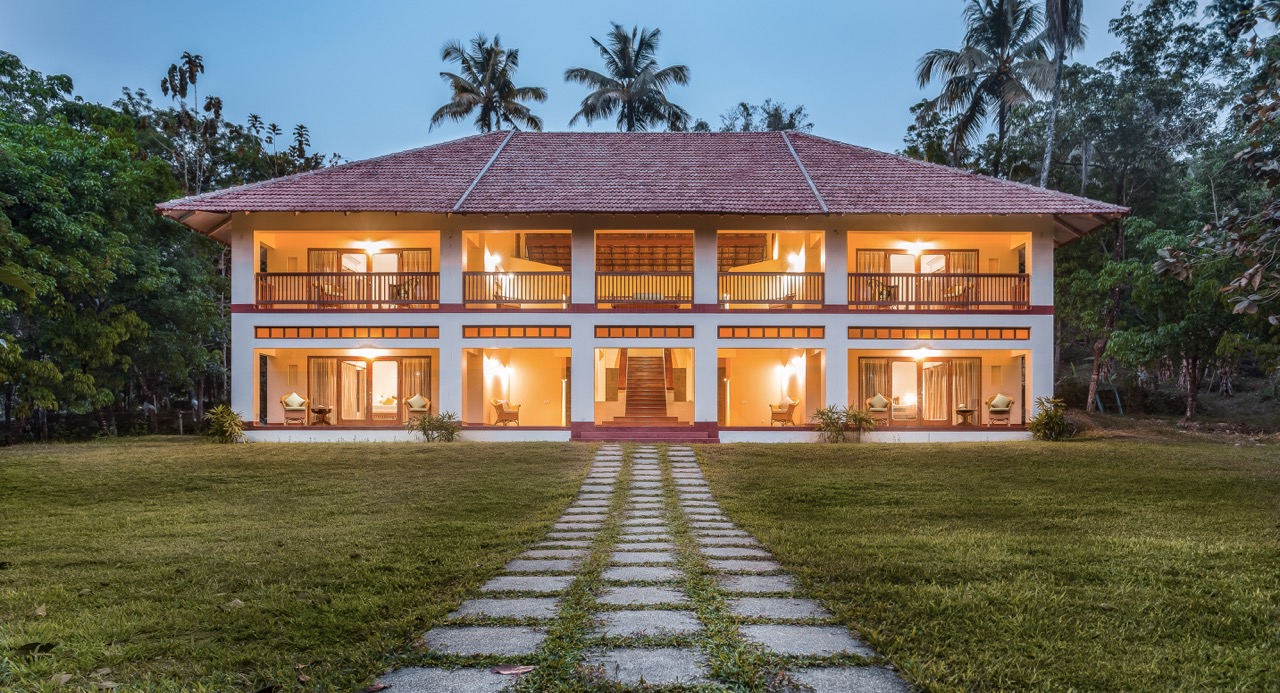
Windermere River House is a peaceful escape where Kerala’s natural beauty takes centre stage. Set on the tranquil banks of the Periyar River, this colonial-style retreat feels more like a private home than a hotel.
Learn MoreWindermere River House is the epitome of calm. It sits on two acres of lush garden right on the banks of the Periyar River, and the loudest sound you’ll hear is the splash of water or the call of a bird. The evergreen forests that surround it host some of the most diverse ecosystems in the world, waiting to be explored. The River House echoes a stately old Colonial bungalow. The rooms are large, with soaring ceiling and furniture that have been customised and handcrafted on site, following the old traditions. The common spaces are thoughtfully arranged to balance camaraderie with privacy, and the home-styled meals are fashioned from the bounty of the land, with a little help from our own kitchen garden. They specialise in solitude, long walks, stretching out on the lawns, bird watching at the nearby sanctuary, canoeing on Periyar River, relaxing by the pool overlooking the Periyar River, leisurely yoga sessions and dinner under the stars.
Windermere Estate
This working cardamom and vanilla plantation is perched on a hilltop a 15 minute drive up a winding road outside Munnar. Windermere has spectacular views and with streams and waterfalls within the 60 acre estate it is the ideal place for nature lovers and walkers alike. Dr Simon bought the estate in the 1990’s and has gradually added accommodation to the original four rooms in the farmhouse to make a total of 19. His own bungalow is within the grounds and he enjoys meeting guest whenever he is in residence. It’s a relaxed place to stay, ideal for families and with pine clad rooms and the wooden ‘Barn’ restaurant it has the feeling of a small mountain chalet. All rooms are spacious and have twin beds (pushed together to make doubles), terracotta-tiled or wooden floors and large windows. The ground floor Garden Rooms have verandas with views of the garden or valley while the larger Cottage Rooms on the upper floors have a balcony. The two Planter’s Villa rooms are more contemporary and have the most privacy with views out over the tree canopy. The restaurant serves meals at set times and the cuisine is traditional local Malayali together with Oriental and Continental options. Regrettably there is no bar (bring your own favourite tipple) but during the day there’s a lovely little tea shop ‘The Hut’ serving tea, coffee and snacks. The lovely staff will guide you on walks, find you a bicycle to go pedalling on the hill roads or help arrange a round of golf at the Tata Tea course at Top Station, occasionally joined by sambar deer or an elephant.
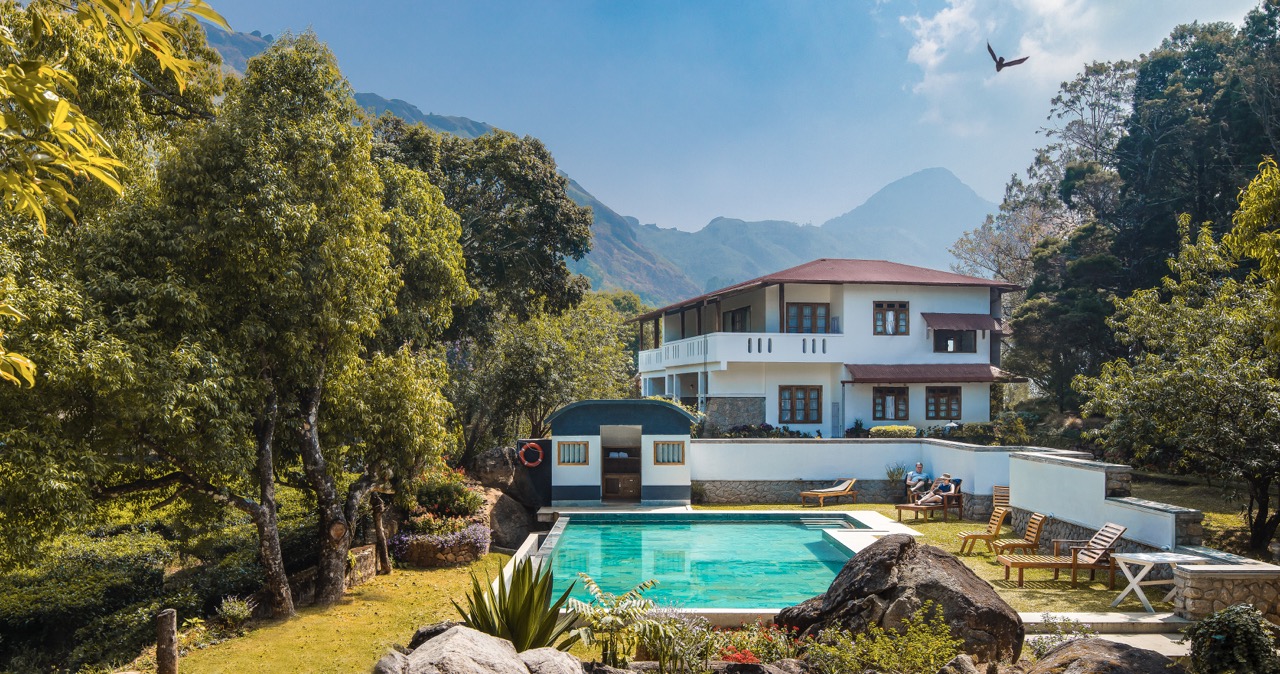
Windermere Estate is more than just a retreat; it’s a window into the heart of Kerala’s highlands. Nestled amidst 55 acres of cardamom and coffee plantations, this family-owned property has been a part of Munnar’s landscape since the 1940s.
Learn MoreMUNNAR
The town of Munnar situated at an altitude of 1524m in the Western Ghats does not have much to recommend it, but its attraction lies in its access to miles of slopes swathed in tea and panoramic views from the hill tops. Before giving up on the town, the little Tea Museum is worth popping in for the fading photographs and stories of the original colonial planters. Until the late 19th century the area was deeply forested and inhabited mainly by tribal people before it was discovered to be suitable for the cultivation of tea. A road from Cochin on the coast didn’t open until 1931. For a scenic drive to the remains of the old ropeway used to take tea to the valley floor and spectacular views head to Top Station. It’s only 34km (21 miles) from Munnar but you’ll need four or five hours for the return journey along narrow winding roads. Not far from the town is Eravikulum National Park, the last sanctuary of a rare mountain goat, the Nilgiri thar. Admittedly it’s not always easy to get excited about seeing what is, essentially, a goat, but the tahr is as endangered as the tiger. Its friendly nature made it easy prey to hunters and its population was decimated during the colonial era. The park gates also mark the start of a challenging steep trek to Anamudi (2695m), south India’s highest peak. There are plenty of other less strenuous walks in the area and the fresher air makes a welcome break from the heat of the plains. Munnar is easily accessible from both Cochin and Periyar as well as Madurai in Tamil Nadu and a stay here is recommended as part of a tour of Kerala.
Spice Village
Set in 15 acres of spice gardens, lawns, fruit trees, herbs and flowering plants, Spice Village holds the protection of nature and the environment as one of its core values. Accommodation is in 52 cottages under a thatched roof of elephant grass, checked annually after the monsoons and maintained by local tribal people who would do the same with their own homes. Inside, the stone floors with coir mats also help to keep the rooms cool so that there is no need for airconditioning but an overhead fan keeps the air moving. And there are no televisions, just the sound of birdsong. Solar power provides most of the hotel’s needs. The whole of Spice Village is a chemical-free zone so a variety of natural insecticides and the scent of lemongrass are used to keep the mozzies at bay. The cuisine here is distinctly local and the chef offers cookery demonstrations so that you can make your favourite dishes back at home. There are continental and western dishes for the less adventurous. Other facilities include a swimming pool, tennis courts, badminton, and Ayurvedic centre. There’s a resident naturalist on hand who offers talks on the surrounding environment and wildlife but specimen trees and unusual looking plants in the grounds are all labelled (perhaps a little too obviously) to instantly satisfy your curiosity.
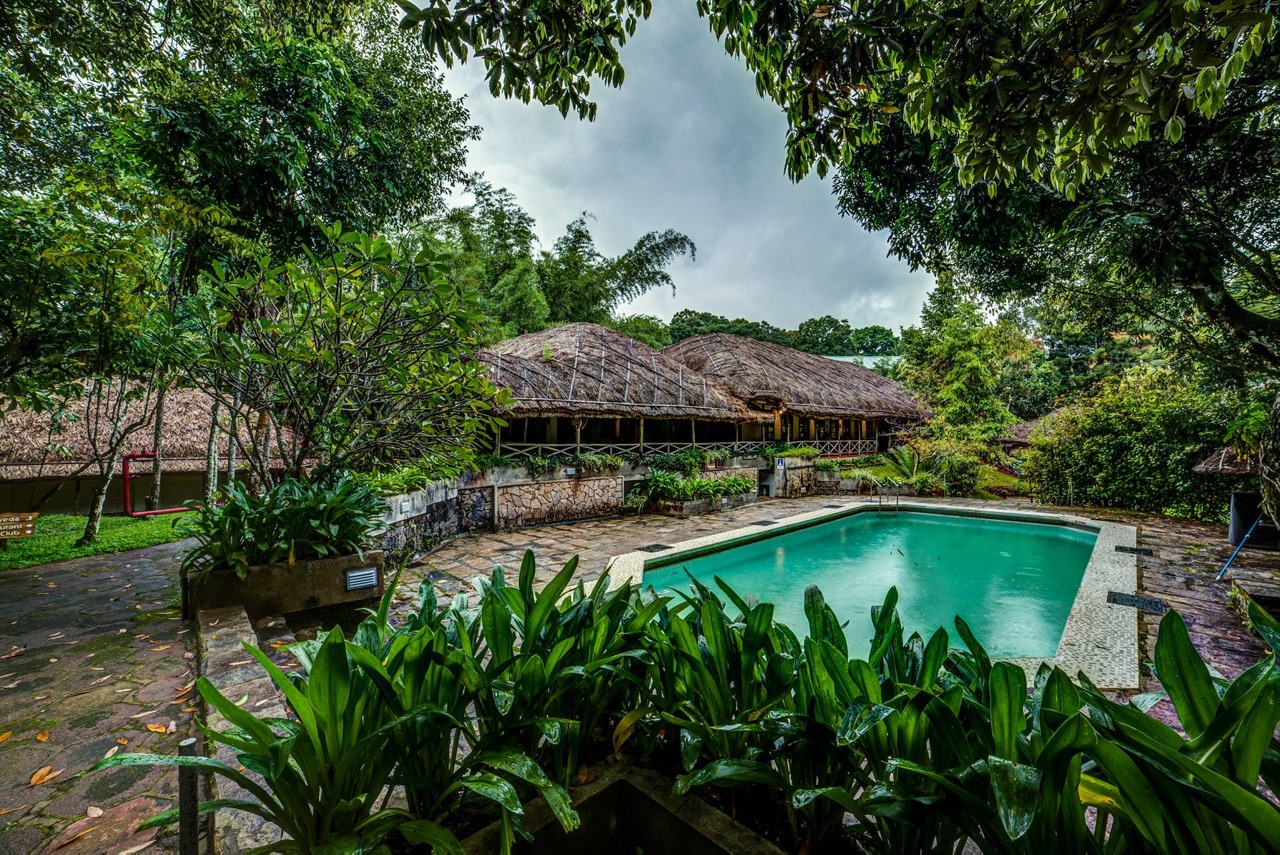
Spice Village is not just a resort; it’s an ode to the traditions, ecology, and rich heritage of Kerala’s highlands. Located in Thekkady, on the doorstep of the renowned Periyar Wildlife Sanctuary, this eco-friendly retreat immerses guests in the sights, sounds, and smells of the spice-scented hills.
Learn MorePERIYAR
Periyar Lake was formed by the building of a dam on the Periyar River at the end of the 19th century, and the area of forest around it in the Cardamom Hills of Kerala’s Western Ghats is now south India’s most popular wildlife sanctuary. Regrettably, the high number of visitors to the main lakeside settlement and dense vegetation means that the chances of spotting animals are not always terribly good – particularly from the large and noisy government boats. However, Periyar is still a picturesque spot and its a great place to appreciate the jungle and rise early as the forest comes to life with the calls of birds and monkeys. Hiking is the best way to see animals and with luck you may see Elephant, gaur and sambar close to the edges of the lake. Periyar is also an important area for spice production. Farmers grow a mix of cardamom, pepper, vanilla, cloves and ginger in mixed plantations beneath trees which shade the spices. For visitors who have more time Periyar is also a good base from which to begin walks into the surrounding hills of grasslands, evergreen, deciduous and riverine forests.
Kerala Houseboat
The kettuvallam, literally ‘tied together boat,’ is a comfortable and traditional way to get around the Backwaters. In times past this was Kerala’s equivalent of a container ship, up to 100 feet long and able to carry 30 tons of cargo. Great planks of seasoned and oiled jackwood were lashed together with coir rope and seams stuffed with coconut fibre before being slathered with a nice goop of boiled cashew shells to keep it watertight. Not a single nail used. The same methods are still used today to build rice barges adapted for human cargo. Climb aboard and there’s a bamboo and palm thatched canopy to provide shelter from the sun, comfy chairs from which to watch the world go by and a table to take your meals at. There are one or two simple bedrooms with en-suite loo and shower though the water pressure is often so low you’re better off using the bucket and jug to wash. Your private houseboat is run by a crew of two or three local men who keep the engine chugging, steer it along the lagoon and arrange a canoe ride along a canal. A cook rustles up delicious meals in the impossibly small galley and there’s nothing for you to do except sit back and enjoy the view, lie in the sun or catch up on that holiday reading you promised yourself. The Backwaters are popular these days but the crew will try and find a quiet spot to moor for the night. After a cold beer at sunset dinner is promptly served followed by fabulous star-gazing in the huge skies. Usually it’s early to bed and the air-conditioning is on for an hour or two before the generators turned off and the peace of the Backwaters returns again.

Gliding through Kerala’s palm-fringed backwaters aboard a traditional wooden Kettuvallam houseboat is one of India’s most peaceful and immersive experiences. Originally used to transport rice and spices, these beautifully crafted boats have been reimagined as floating retreats, offering a slow-paced journey through Kerala’s iconic waterways.
Learn MoreBACKWATERS
A vast network of narrow canals, lakes, rivers and lagoons between Cochin and Kollam (Quilon) make up Kerala’s unique Backwaters. Hidden from view from the road the area is filled with groves of mango, papaya and jackfruit, rice paddies and fields of tapioca beneath palms that form green archways over the narrowest channels. Boats of all descriptions are punted, sailed or motored between the villages carrying people to and from their homes and goods to market. Villagers tend to flocks of ducks and prawn farms, stand in water up to their necks, picking up fish from the muddy bottom with their toes, or dive for mussels. Clothes, bodies, pots and pans are washed on the water edge. Little cormorants, snake birds and night heron, kingfishers and egrets are regularly seen. Once called the Venice of the East, by Lord Curzon, a Viceroy of India this description of Alleppey rather stretches the imagination these days. It is a busy working town and from here hundreds of houseboats, large converted rice barges, set off to ply the waterways . They used to transport goods, but with the collapse of the coconut farming industry and the modernisation of roads, their popularity with visitors is a godsend to local people. As well as providing a valuable source of income it has also revived an ancient form of boat making that might otherwise have been lost. However, if you’re feeling more adventurous you might prefer to explore by paddling your own canoe or jumping on board a government ferry. They are crowded but offer an authentic view of life.
Philip Kutty’s farm
Philip Kutty’s Farm offers the chance to stay with a local family and experience the way of life in Kerala’s Backwaters while still enjoying your own independence and the privacy of a spacious villa. Set on a private island, your experience begins with reaching the farm in a truly relaxed style that sets the tone for your stay – gliding across the water in a dug-out canoe punted by the house boatman. The family lives in the main house and manages a 750 acre estate where spices, fruit and vegetables are grown. You’ll get to see farming Kerala-style during your stay from coconut, nutmeg, banana, cocoa and pepper cultivation to jumbo prawn and karimeen (pearlspot fish) found in some of the farm canals. It’s a fabulous place for bird-watching too and you’re likely to catch glimpses of kingfishers, woodpeckers, egrets, cormorants, herons, crow pheasants, snakebirds and teals to name a few. Your lovely hosts, ‘Mummy’ and Anu, are renowned for their excellent cuisine and you shouldn’t miss the chance to learn some of their culinary tips during a cookery demonstration before all guests eat together around a large shared table. The six en-suite waterfront villas are built in the traditional style with beautifully carved windows and doors, high ceilings to keep the room cool (there is no air-conditioning) and simply but attractively furnished. Your veranda is an ideal spot to while away a balmy evening watching fire-flies dance in the night sky
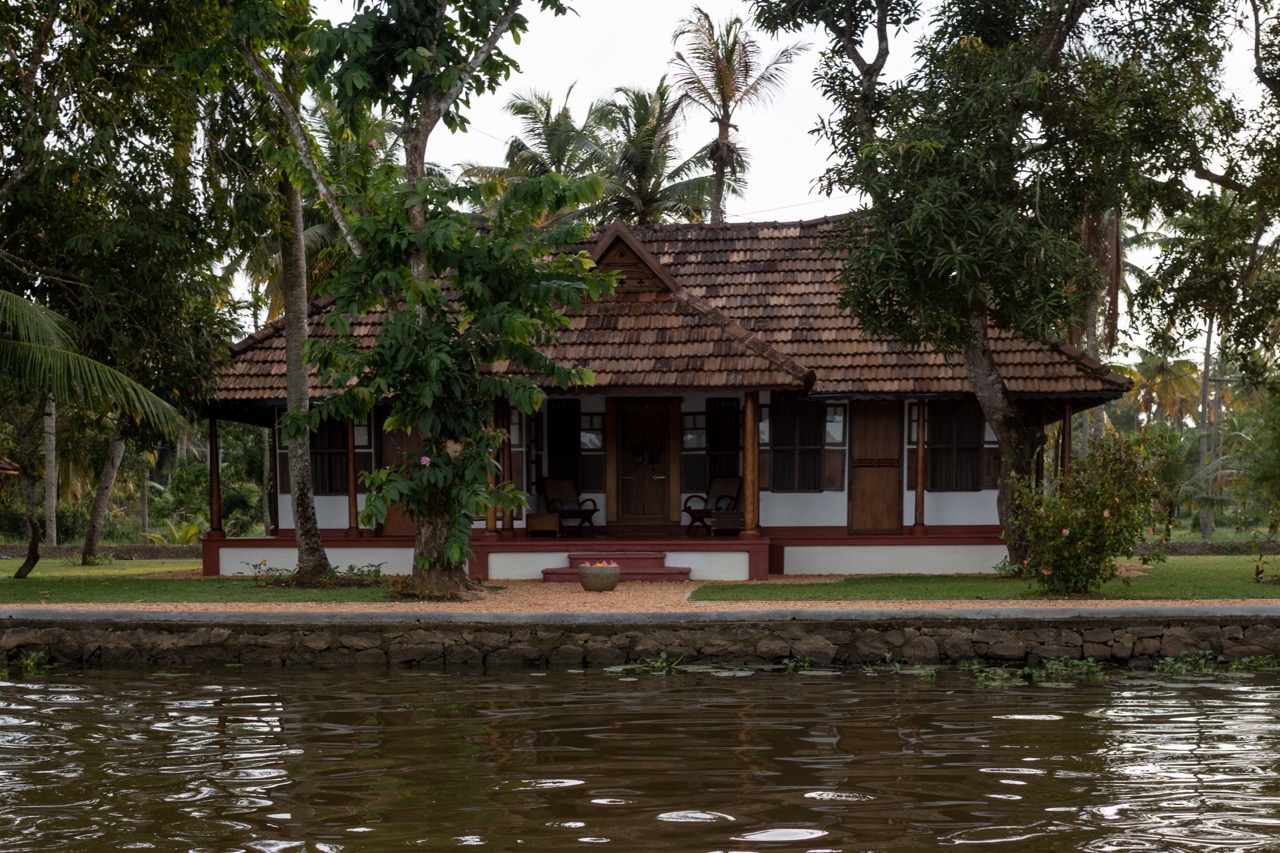
Philipkutty’s Farm is a family-owned homestay situated on a private island in Kerala’s backwaters, near Vembanad Lake. Established in the early 1950s, the farm spans approximately 35 acres and is renowned for its sustainable and organic farming practices, cultivating crops such as coconut, banana, and various vegetables.
Learn MoreMarari Beach Resort
Just an hour’s drive south of Cochin Marari Beach Resort is built in the style of a Keralan fishing village with 62 white-washed palm thatched cottages surrounded lawns, 13 varieties of banana plants and numerous palm trees. The twin and double bedded rooms are light, airy and uncluttered and reached via your own private veranda which has the thoughtful touch of a tap next to the steps to wash the day’s sand from your feet before going inside. In keeping with the local style, bathrooms are partly in an open-roofed courtyard so that you can continue to enjoy the fresh air and sunshine while showering with natural bath products made specifically for the resort. Some of the villas also have their own small pool in a private courtyard but if you decide not to plump for one of these, there is a large swimming pool for all. Marari is all about relaxing so there are no televisions to distract you or great list of activities but you can go for a bike ride, explore the local village, play tennis or unwind with a traditional Ayurvedic massage. Kalarippayattu demonstrations are sometimes arranged and you shouldn’t miss the chance to watch this incredible martial art. Fresh locally caught seafood is a highlight of dishes on offer at the restaurant and cookery demonstrations are available most days if you would like to learn more about Kerala cuisine. In common with all other CGH Earth properties, the resort runs with care of the environment in mind and a member of staff will be happy to explain its operations, take you to visit the bio gas plant and the organic vegetable garden.
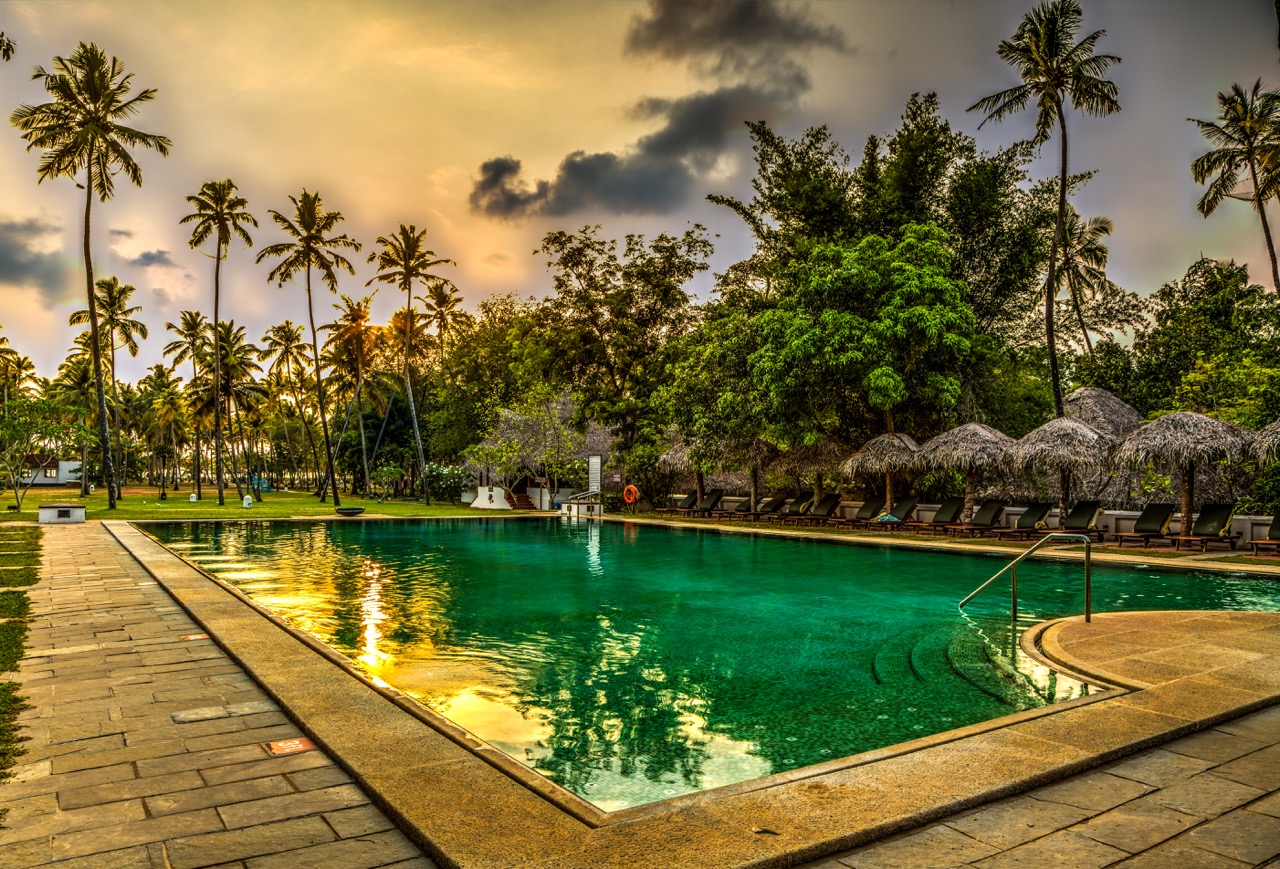
Marari Beach Resort is a serene coastal haven that captures the essence of Kerala’s traditional village life. Located near the quiet fishing village of Mararikulam, the resort sprawls across 30 acres of coconut groves, lily ponds, and lush gardens, offering a tranquil retreat just a short walk from the Arabian Sea.
Learn MoreOld harbour
Converted from an old colonial building that once belonged to a tea company, Old Harbour is a charming heritage hotel created by local art lover Edgar Pinto with the help of a German architect. Together they have created a very stylish place to stay in the heart of Fort Cochin, decorated with Indian modern art, sculptures picked up in Cochin’s Jewtown and light cotton fabrics. There are 13 rooms and suites, all modestly but comfortably furnished. The garden cottages feature shower rooms open to the sky while the three spacious suites come complete with four-poster beds. There are no TVs (though these and CD players can be provided on request), so spend your time in the swimming pool after sightseeing or enjoy a leisurely meal of freshly cooked seafood on the restaurant terrace. Service can be slow but the staff is obliging and friendly helping to make Old Harbour a lovely relaxed place to stay.
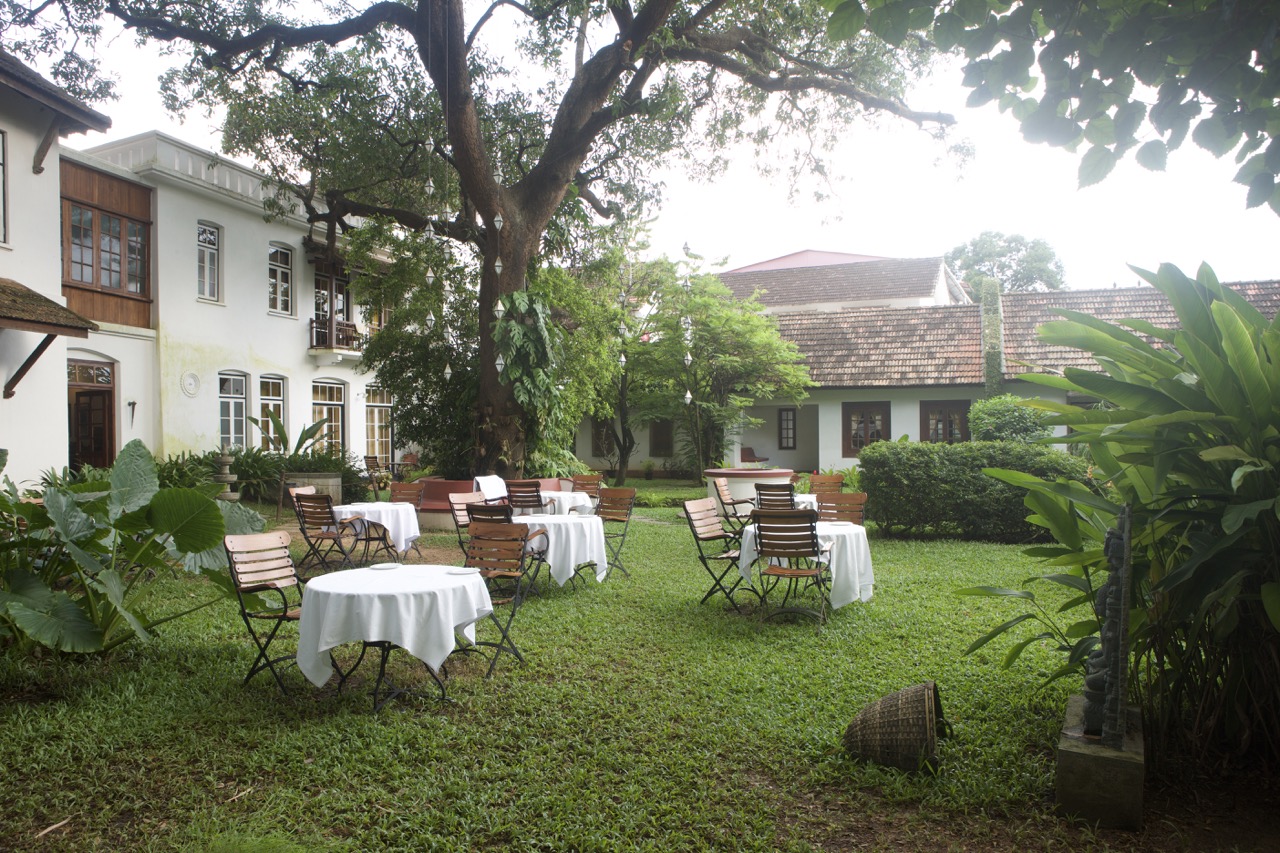
Situated in the historic quarter of Fort Kochi, Old Harbour Hotel is a meticulously restored 300-year-old heritage building that reflects the rich colonial history of the region. Built in the Dutch architectural style with Portuguese influences, it was the first hotel of old Cochin and has long stood as a testament to the area’s storied past.
Learn MoreCOCHIN (KOCHI)
With its natural deep water harbour Cochin was already a centre for India’s spice trade before the Portuguese founded the first European settlement here in 1500. The Portuguese were driven out by the Dutch, who, in turn, were displaced by the British. Together with the trading Arabs and Chinese, each has left their own influences on Cochin. The city is built on a series of islands but it is Fort Cochin and Mattancherry with their narrow streets and winding lanes, colonial architecture and heritage hotels that are likely to occupy most of your time. The area is conducive to leisurely exploration on foot, people watching with a cold drink in hand and sticking your head into old warehouses full of aromatic spices or antiques. Take a wander along to the waterfront to find the huge cantilevered Chinese fishing nets that have become an iconic image of Cochin. Just a short step away is St Francis church. A simple building, it is the oldest Christian church in India and Vasco da Gama was buried here (though his remains were later removed to Portugal, the tombstone is still here). Other sites of interest include the 16th century Paradesi Synagogue (closed on Fridays) and Mattancherry or Dutch Palace which has some wonderful murals depicting scenes from Hindu legends. In the evening, you might like to catch a performance of Kathakali traditional dance-drama at a local theatre (payable locally). If you find this old world atmosphere a little too genteel, simply hop on a public ferry to Ernakulum, the commercial hub of the city and dip into the hustle and bustle of the local markets.
Discuss your dream safari with our experts travellers
Other inspiring itineraries
NOT SURE WHERE TO GO?
Get advice and recommendations from our travel experts.
Talk to our travel expertsWHAT PEOPLE SAY
Kerala itineraries (faqs)
What is the best time to visit Kerala?
The best time to travel is between November and March, when temperatures are comfortable and the monsoon rains have passed. This period is ideal for exploring the backwaters, walking in the hills, and enjoying Kerala’s coastline.
How does a houseboat fit into this Kerala itinerary?
A night or two aboard a traditional houseboat is woven into the journey — a quiet way to travel through the backwaters, passing villages, coconut groves and fishermen at work. It’s not a cruise, but a chance to absorb a different rhythm of life.
What should I pack for a Kerala itinerary?
Light, breathable clothing is best — plus a shawl or scarf for temple visits and a lightweight rain layer if you’re travelling near the start or end of the monsoon. Comfortable shoes are helpful for village walks and spice garden visits.
Do I need vaccinations for travel to Kerala?
Please follow the link below for up to date information,
https://www.gov.uk/foreign-travel-advice/india/entry-requirements
What else is there to do in India?
Please follow the link below to see our other itineraries in India,


